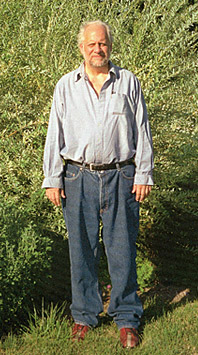The Real Social Network
At the dawning of the era of the personal computer, high-tech visionaries heralded the coming digital golden age. Technology would liberate us from drudgery and enrich our existence. Awaiting us was a new epoch of leisure and work-life balance.
Our lives would be more than lives; we’d have lifestyles, with bountiful “quality time” to spend at home with our families, and in our community with our friends, exploring interests and pursuing happiness.
The internet, we were promised, would be akin to a backlit Enlightenment, offering unprecedented opportunities to participate in a worldwide community, to learn, collaborate, and encounter diverse viewpoints to the betterment of ourselves and the world. Eureka!
Delete and update: in the 21st century the internet transformed from a wellspring of knowledge and community to a sinkhole filled with content intended to spark curiosity and provoke emotions, the better to monopolize our attention for as long as possible in the interest of commerce. Internet users went from being digital adventurers to virtual serfs bought and sold by advertisers.
We spend a third of our online time visiting social networks, such as Facebook, Twitter, and Instagram, where we reside in a surrogate reality, a heatless inferno awash with imposters, misinformation, and discord. In seeking like-minded people, users encounter viewpoints mirroring their own, in an echo chamber that filters out alternative views.
Little wonder online socializing devolves into shouting matches. Still a vast repository of imagery, knowledge, and data, the internet has spawned impoverished media devoid of nonverbal cues—cadences, silent intervals, gestures, eye contact, facial expressions, attire—that convey, according to American psychologist Albert Mehrabian, up to 93 percent of meaning in communication. Online users are fractional selves miscommunicating with other fractional selves.
Join me now in the original social network, the garden, the last, best place on earth. Here you are worlds away from the internet, that airless, intangible domain empty of beauty, wonder, and soul.
First, let’s save children from the 24/7 social media carnival, where attention spans sputter, anxieties grow, and depressions fester. Let them not talk dirty, but get dirty. Show them burgeoning roots and shoots, hopeful buds, and handsome foliage. Let them gaze upon dazzling, luminous flowers. Teach them to become citizen-scientists, banding together to share sow dates and solve bug problems.
Set free your kids’ smiles, boost their moods, and—since studies show they eat what they grow—upgrade their diets. Let them learn the world from the ground up. Soon they’ll plant themselves not before the computer, but out in the yard; their ear buds will give way to budding plants, their texts replaced by the poetry of the landscape.
Escape the web’s cultural Babylon for the Edenic unison and serenity of the garden. Here, on humanity’s only winning side, tweets come across the lawn or from up the block; the only argy-bargy breaks out over damaged deer fences and knotweed invasions. Here is peace.
Here your senses are fully engaged in a setting rich in color, sunlight, moonlight, fragrance, texture, beauty, breezes, and palpable rewards. Your social network is the web of life, including insects, birds, fungi, and bacteria—all your evolutionary cohorts.
In the garden our lives are rewarded minute by minute, day by day, season by season. Our quests culminate in astonishing plants and flowers, and flavorful, nutritious vegetables, herbs, and fruits. Here natural algorithms lead to cornucopias of satisfaction.
Anthropologists tell us that humanity makes the culture by which it is made. We see this in how the garden—nature domesticated by people—domesticated us in turn, giving rise to culture (a word derived from the Latin word cultura, meaning growing, cultivation), towns and cities, civic life and institutions.
Expand your gardening social network with your family, or join friends, neighbors, and visitors in a community garden: an open-air chatroom. Go from the web to the web of nature. In gardens the virtual becomes tangible, meaningful, and edible. Here harmony is harvested. Here you are home.
A version of this article appeared in the Dayton Daily News, The Allentown Morning Call, the Houston Chronicle, the Fort Worth Star-Telegram, The Commercial Appeal (Memphis, TN) and the Casper Star Tribune.
